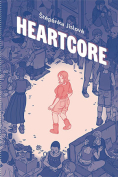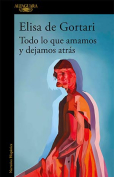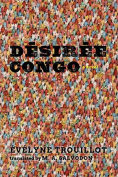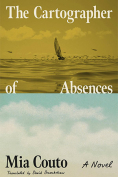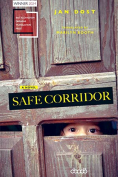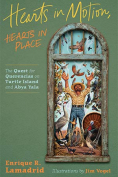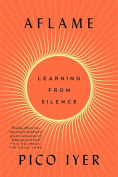Crocodiles at Night by Gisela Heffes

Dallas. Deep Vellum. 2025. 180 pages.
Rarely does reality distort or disorient like it does when one faces a serious illness. To experience uncontrollable changes in a body, or to observe them in a loved one’s body, will leave a person reeling. Crocodiles at Night examines the hardship of witnessing a family member beset by disease. The novel’s narrative framework facilitates an unsparing examination of illness, health care, and their attendant pains.
Heffes’s first-person narrator, a writer and proxy for the author, begins with a notebook entry in which she replaces herself with an invented character: “The main character of this novel is not Gisela, but Vera. Her last name is not Guerenstein, but Heffes.” From this remove, Gisela—our not-Vera—documents her father’s failing health as well as her ensuing disorientation in place, time, and the industrial healthcare complex. Alternating between Vera’s notebook entries, Gisela’s narration of her lived experience, and correspondence between doctors and family members, the novel consistently pushes and pulls the reader between fact and fiction.
Such temporal drift embodies the paradox of navigating both recovery and distance, a path the novel treads painstakingly, beginning with Gisela numbering post-op days before resorting to endless “Day No Number.” Heffes’s readers will recognize this atemporality; her 2023 novel Ischia (also translated by Wray) is related in the conditional tense, keeping the reader adrift in the action and constantly unsure of what to trust.
In Crocodiles at Night, Gisela faces a Buenos Aires unrecognizable from the city she grew up in; an opaque healthcare system where jargon obfuscates diagnoses and treatments; and her transformed father. She is “unable to assimilate the image” of her hospitalized father to her memory of who he was prior. When Gisela leaves Buenos Aires to return to her life in the United States, the “meaning of her presence in an unexpected place” eludes her, whether at her father’s bedside or in the home she shares with her husband and children. This unmooring produces “an internal delirium” she never seems to shake.
The novel’s most striking impressions emerge from this psychological fog. Wray’s translation reveals the poetry of Heffes’s language, as when Vera strives to understand this upheaval through writing, a process that “is like spilling a glass of wine.” This uncontainable stain “expands until it penetrates some remote space and stagnates there, like words.” With Gisela’s experience mediated by her role as author, it’s difficult to trace objectively how she feels and what’s really going on around her. But perhaps that’s precisely her aim.
Back in the US, Gisela grows increasingly paranoid and guilty about being away from her recuperating father. Before surgery, he was not informed about his condition’s severity or exactly what the procedure would entail. Everyone “had built a stage set around him,” concealing the truth of his prognosis. At the novel’s end, I felt a comparable discomfort, desiring intimacy with the characters yet unable to achieve it, leaving me with the sense that I, too, had passed through an experience of loss.
Andrea Avey
University of Iowa





